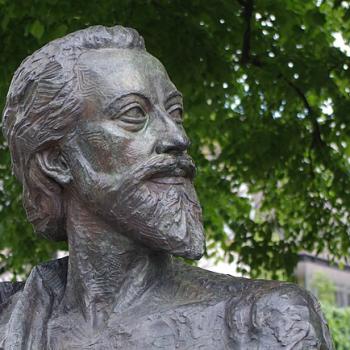The West Needs Buddhism
George W Wright
Honolulu, Hawaii
1 January 1929
Published in An Outline of Buddhism, edited by Ernest Shinkaku Hunt
I’ve looked for anything I could find about the author, George W Wright, but sadly, or, maybe not, I can find nothing. Well, other than perhaps that he was at one time a Presbyterian missionary, and perhaps at some point editor of the Hawaiian Hochi, a Japanese American paper. I really would like to know more about him. And, if any reader can share some biographical details, I’d certainly appreciate it. However, as things stand what we get are only his words, plain and simple. Written, or at least published on the first day of 1929. What I really find interesting is how relevant what he wrote is for us today, just shy of ninety years following its first publications.
Westerners should be attracted to Buddhism because of its striking appeal to reason and common sense, an because it offers a logical and scientific system of ethics and culture that is based on sound philosophical principles.
Other religions have presented excellent moral codes that were well adapted to the conditions that existed at the time they were given out. But there have been vast changes in the world and in the human race since the days of Jesus, for example, and the religious systems have failed to adapt themselves to these changes. They have lacked elasticity. This is because they are based upon revelation and make no claim to conform to natural law. They must be taken on faith, and people today demand something more definite and tangible as the basis of their philosophy of life.
But Buddhism, though an older system than Christianity, is based upon fundamental cosmic realities and its elements readily adapt themselves to natural changes, to progress and evolution. It offers no elaborate theories, demands no special exercise of faith, makes no pretensions to divine revelation, and does not insist that it has an exclusive monopol9y of truth.
Buddhism contains nothing that is at variance with the facts of modern science. It conforms to the very best thought embodied in all the great philosophies. Its teachings and its doctrine offer the best guide to rational conduct that has ever been formulated.
Western nations could profit greatly by a sincere study of the principles of Buddhism, for they offer a solution to the problems that are now confronting modern civilization. People can find in Buddhism either a religion, a philosophy, a moral code or a system of self-culture and discipline that will be perfectly adapted to modern conditions.
The great lesson that Buddhism has to teach the West is that of direct, Individual responsibility. Buddhism offers no loophole through which one can evade the consequences of his acts. It teaches that each alone is responsible and must pay the price for every violation of the natural law, either in the physical or the moral fields. It teaches that only by correct understanding of and conformity with the law can one gain progress and unfoldment, and that the result of such correct adjustment is an increased measure of happiness, culminating in a final perfect state of ideal enlightenment that frees one completely from the sorrow and pain that is the inevitable accompaniment of ignorance.
Buddhism is simple and easily understood, and its teachings offer no obstacles that must be surmountable by closing the eyes and leaping forward in the dark! And it covers a field that is broad enough to include every variation of human mind that is honestly seeking the Truth. It is tolerant enough to concede to each one his right to his own opinion, and it builds no barriers of prejudice or bigotry to hold its brotherhood together.













